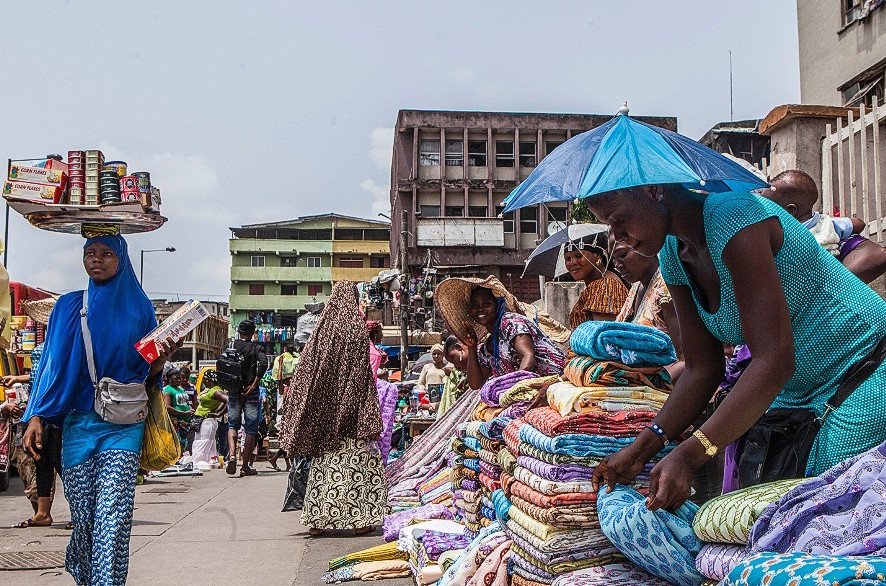As activities for electing the next set of political leaders gear up this week, with major political parties conducting primaries to choose governorship and presidential candidates, Nigeria’s need for good governance as primary criteria to translate national development plans into economic development and improved welfare has emerged as a burning issue with leading economy experts highlighting how bad governance hinders the performance of the nation’s economy.
This follows a seminal x-ray of Nigeria’s economic performance in relation to the various national development plans, at the 2022 edition of the Vanguard Economic Discourse with the theme, National Plans and Performance: Gaps, Lessons and Opportunities.
Following a comprehensive review of economic planning in Nigeria, the keynote speaker, Professor Akpan Ekpo, identified bad governance as the main reason why the various national development plans failed to deliver on the objectives of massive employment and improved economic development.
Ekpo, who is a Professor of Economics, is the Chairman of the Foundation for Economic Research and Training. He is also the former Vice-Chancellor, University of Uyo, Akwa Ibom as well as the former Director-General, West Africa, West African Institute for Financial and Economic Management (WAIFEM).
Noting that Nigeria scores very low, and was below countries like Ghana, Benin, South Africa and Egypt, in the six major governance indicators, Ekpo asserted that good governance, propelled by transformational and visionary leadership, is what ensures that national development plans are effectively and efficiently implemented.
He added that the prevalence of bad governance in Nigeria is manifested through political instability, widespread violence and corruption, ineffective government institutions, poor regulation, as well an absence of rule of law.
“There is a lack of accountability, transparency, absence of citizens’ participation, and an enabling legal framework for conducting business. Even in the few exceptions, implementation is still a tall order,” he noted.
This, he said explains why, in spite of the lofty objectives and targets of the nine national development plans since 1960, the performance of the economy has been below average with persistently high unemployment, poverty, and inflation rates while the structure of the economy remains the same, with contributions of critical sectors like manufacturing, construction, and real estate to the Gross Domestic Product, GDP, are far below what is required to generate double-digit growth, employment and export earnings needed to guaranty improved foreign exchange inflow.
“Overall, the performance of the economy has been mixed. The economic performance index (EPI) which stood at 77.3 per cent in 2008 dropped to 65.6 per cent in 2014 increased and averaged 70 per cent between 2017 and 2019. By 2020, it dropped to 53 per cent. For an economy to perform above average, the score must be 80 per cent. For the entire period of 2008-2020, the performance of the Nigerian economy has been below average
“If the various development plans were effectively and efficiently implemented, the economy would have performed better, at least, in a macroeconomic management sense. However, the poor performance at the sectoral level confirms the unsatisfactory performance at the macroeconomic level
“For the economy to perform satisfactorily and generate employment the manufacturing sub-sector must contribute at least 40 per cent to GDP. In fact, from the 1960s to the present, this sub-sector has never contributed more than 10 per cent to GDP.
“The manufacturing of non-oil goods and services and exporting of the same to other countries would earn the needed foreign exchange for the economy. In the economy, this sub-sector is still engaged in packaging, assembling and bottling sometimes without adding value to the process.
“The construction, financial and insurance sectors shares in GDP averages about 4 per cent and 3 per cent respectively while the real estate sector shares is about 6 per cent during the period 2008-202. The shares are quite low, and policies ought to be directed at these sectors to enhance growth and development.
It must be stated that the country’s GDP is diversified but the economy is not. A diversified economy would connote an industrialised economy in which manufacturing, construction, real estate as well as the finance and insurance sectors contribute significantly to output with associated linkages. It is important that policy-makers and technocrats follow the data in formulating economic development plans, he explained.
In his recommendations, Ekpo identified the need to develop the commitment and political will to implement plans in an effective and efficient manner, as poor implementation has been the bane in achieving plan outcomes in Nigeria.
“To ensure a proper linkage of the plan to budgets and expenditure frameworks, there is a need for appropriate legislative backing as was contemplated under NV 20: 2020. It will help to curb plan indiscipline and distortions during plan implementation.
“There is a need for continuity, consistency and commitment to agreed policies, programmes and projects in order to enhance plan outcomes as well as avoid implementation of multiple competing plans”, he added.








